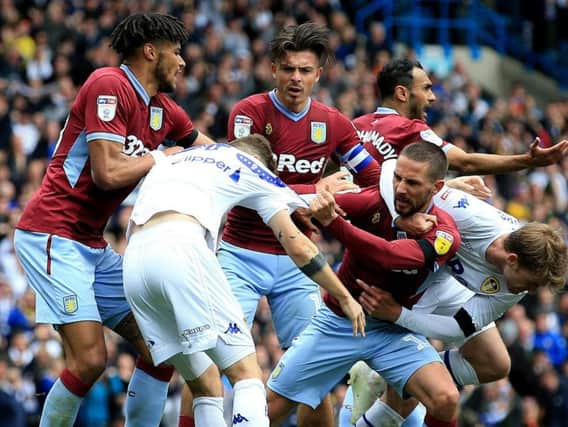Leeds United head coach Marcelo Bielsa explains Aston Villa actions and what matters most in English football


Mateusz Klich caused chaos when running in on goal with Villa's Jonathan Kodjia down injured before firing United into a 73rd-minute lead.
The goal sparked an angry reaction from Villa and a huge melee which led to Anwar El Ghazi being sent off and both Conour Hourihane and United's Patrick Bamfordbeing booked.
Advertisement
Hide AdAdvertisement
Hide AdBielsa was also locked in heated in discussions with Villa boss Dean Smith and his assistant John Terry with United's head coach then ordering his men to allow Villa to score straight from kick-off to level the score.
Albert Adomah did just that to make it 1-1 in the 77th minute, despite the protestations of United centre-back Pontus Jansson who still attempted to clear the ball as Adomah made his way in on goal.
The controversy then continued this week as United striker Patrick Bamford was handed a two-game ban for the new rule of successfully deceiving a match official after falling to ground and holding his face following a confrontation with El Ghazi who saw his red card rescinded.
Hourihane - who threw a punch at Klich - got away with no further punishment - a matter that remains highly contentious - but Bielsa says there was no doubting he had taken the morally correct decision in allowing Villa a walked in goal.
Advertisement
Hide AdAdvertisement
Hide Ad"It is important to clarify that the the episode has nothing to do with the decision taken by the referee," said Bielsa.
"We can’t make a link between the decision taken by referee and the decision we took and I didn't take the law of the referee.
"What explains that the rival was right is the moment of doubt we all had when Tyler Roberts stops playing and then kicks and makes the pass.
"This episode, which is decisive, could not be solved by the referee but it made it easier for us to score a goal. Without this detail it would be harder for us to score the goal so there is something that is evident, that is clear. How we would have felt if we were in the rivals' position? That’s why we took the decision that we took.
Advertisement
Hide AdAdvertisement
Hide Ad"Regarding your question: the English fan, all those who are on the pitch, and those who work in the industry of football, we are all affected by it.
"Nobody is natural. We are all infected.
"Those who working in the industry of football are all infected and the only pure people are the fans.
"And the English fan is different than the fans I have met and known in other countries.
"I don’t know how English society is outside of football.
"But what I am sure of is that the English fan rejects the undeserved advantages.
Advertisement
Hide AdAdvertisement
Hide Ad"All over the world, the extraordinary thing about the fan is, especially in Argentina, is the love without conditions, unconditional love.
"And this is not very frequent in other aspects of life.
"But what I have seen here in England, the fan says, even if I love you a lot, I’m not ready to accept something if you get it and you don’t respect the sportsmanship. I don’t know if this is right.
"I don’t know how is society in general when we have to put this concept in other aspects of life, of accepting undeserved things, but in football I felt it was like that."